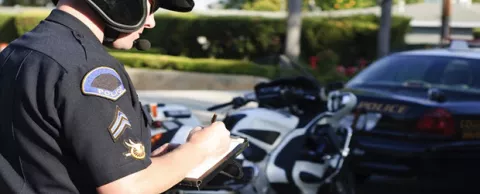
At a time when the relationship between police and citizens in several cities is strained and calls for police accountability and transparency are getting louder, it's encouraging to see a department take the initiative and voluntarily provide information about arrests, traffic enforcement, service calls and the other things police do to ensure public safety.
As our story below explains, the Johns Creek Police Department is experimenting with an open data tool to provide that information to residents in a convenient, easily accessed format. The program is designed to increase transparency and engage citizens and educate them about what police are doing to ensure their safety. It's also helping the department operate more efficiently. Similar solutions are being adopted throughout the country. Is it time for your city to do the same? — Doug Peeples
The Johns Creek Police Department's (JCPD) experimental program, referred to as PoliceView, compiles a variety of police statistics and reports residents can use to find out about arrests, crimes and other information.
Keeping the public informed... and engaged
As JCPD Lieutenant Jon Moses was quoted as saying in a PoliceOne article, "New methods are needed to re-engage citizens with law enforcement, and in some instances, rebuilt trust. Luckily, recent technological trends like open data allow for a collective change in this paradigm. Open data tools allow organizations to compile enormous quantities of information and then catalog, analyze, visualize, and report on that information in ways that were impossible before."
The PoliceView solution is the result of a collaboration between Socrata for Public Safety and Council Associate Partner SunGard Public Sector. Both companies provide software for public safety and justice agencies. By design, it reflects the intent of the White House Police Data Initiative, which recommends that police take advantage of the data they have to restore a relationship of trust with citizens and do a better job on their own internal analysis and accountability efforts.
As SunGard Public Sector Program Manager Chris Schoenmann put it, "Police relations need to improve significantly, and the public needs to feel it has visibility into the inner workings of their local agency."
How data analysis helps police
Sungard's take on how plugging big data into systems such as PoliceView is that police departments can learn much more from their internal data regarding arrests, convictions and response times. That ability gives them the information they need to determine how and where to assign patrols and better monitor areas where they are performing well and those that could use improvement.
Smart Cities Readiness Guide...
For more on options cities can use to take advantage of their public safety data and create actionable intelligence, the Readiness Guide's Public Safety chapter includes insights and recommendations on the roles of ICT, data management and the dependencies between public safety and other departments such as transportation and energy. It also includes examples of how public safety agencies are using data, as the Miami-Dade Police Department is doing to solve cold robbery cases.
Doug Peeples is a Portland, Oregon-based writer specializing in technology and energy. Follow @smartccouncil on Twitter.



